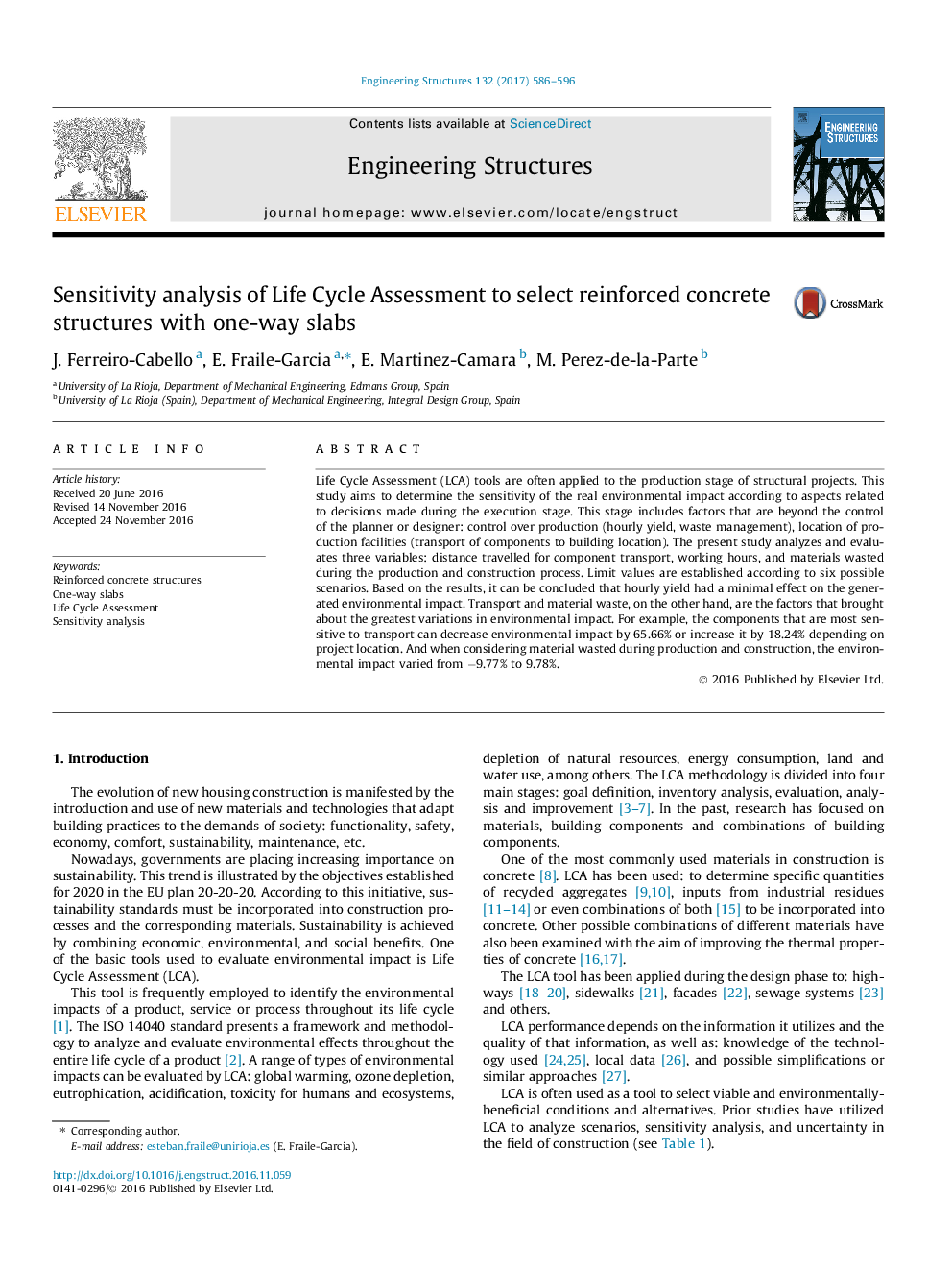| Article ID | Journal | Published Year | Pages | File Type |
|---|---|---|---|---|
| 4920458 | Engineering Structures | 2017 | 11 Pages |
Abstract
Life Cycle Assessment (LCA) tools are often applied to the production stage of structural projects. This study aims to determine the sensitivity of the real environmental impact according to aspects related to decisions made during the execution stage. This stage includes factors that are beyond the control of the planner or designer: control over production (hourly yield, waste management), location of production facilities (transport of components to building location). The present study analyzes and evaluates three variables: distance travelled for component transport, working hours, and materials wasted during the production and construction process. Limit values are established according to six possible scenarios. Based on the results, it can be concluded that hourly yield had a minimal effect on the generated environmental impact. Transport and material waste, on the other hand, are the factors that brought about the greatest variations in environmental impact. For example, the components that are most sensitive to transport can decrease environmental impact by 65.66% or increase it by 18.24% depending on project location. And when considering material wasted during production and construction, the environmental impact varied from â9.77% to 9.78%.
Related Topics
Physical Sciences and Engineering
Earth and Planetary Sciences
Geotechnical Engineering and Engineering Geology
Authors
J. Ferreiro-Cabello, E. Fraile-Garcia, E. Martinez-Camara, M. Perez-de-la-Parte,
